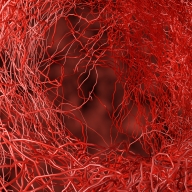Coronary Micro-Vascular Disease – Small Vessels, Big Problem
Medically reviewed by
Dr. Anil Om
McLeod Cardiology Associates
A buildup of gunky plaque in the larger arteries leading to or on your heart hold the threat of creating chest pain (angina) and other symptoms of Coronary Artery Disease (weakness, nausea, pain in your arms and jaw). However, there are smaller arteries on the heart, which are not blocked with plaque but whose walls can become damaged or diseased.
“Coronary Microvascular Dysfunction or Disease causes chest pain in patients, who have no other signs of Coronary Artery Disease (CAD),” says McLeod Cardiologist Dr. Anil Om. “Between half and two-thirds* of the patients with angina and no other CAD symptoms typify likely victims of the Microvascular Disease. Difficulties in diagnosing Coronary Microvascular Disease (CMD) makes treatment challenging.”
DIAGNOSING CHALLENGES
Tests traditionally used to diagnose Coronary Artery Disease fail to detect the Microvascular Disease. Working our way up the testing continuum:
- An electrocardiogram may show up as normal.
- A treadmill stress test may show nothing unusual.
- Ultrasound echocardiography probably won’t show small artery wall problems.
- Even CT or PET Scans may not be able to definitely diagnose the problem.
Cardiologists may spend considerable time discussing your health history to pinpoint the problem before undertaking more invasive diagnostic procedures. Part of this discussion could include a questionnaire called the Duke Activity Status Index, which details your normal daily activities.
The importance of this questionnaire reveals a primary difference between Coronary Artery Disease and Coronary Microvascular Disease. A person with CAD more likely feels chest pain when they are exercising or participating in strenuous activity. Angina in CMD persons more likely occurs during regular activities, such as cooking, shopping or traveling to work.
RISK FACTORS
Common risk factors for heart disease, such as high blood pressure or a family history of heart problems raise a person’s risk. A person struggling with diabetes also faces increased risk of CMD.
In women, the problem links to low estrogen levels that occur before or after menopause.
Anemia – thought to impede cell growth to repair damaged blood vessels – also increases the risk.
TREATMENTS
Unlike larger artery blockages, Microvascular Artery problems can’t be fixed with treatments, such as coronary stenting or angioplasty. Lifestyle changes and medication offer the best treatments.
Helpful medications include:
- Statins, beta blockers and ACE inhibitors to lower blood pressure
- Nitroglycerin to relieve chest pain
- Aspirin to control inflammation
ACTION YOU CAN TAKE
If you have angina (chest pain) with no other Coronary Artery symptoms, see a cardiologist to begin the process of identifying your problem, possibly with the Duke Survey.
Until then, quit smoking, lose weight, eat healthy and exercise regularly.
Sources include: McLeod Health, National Institutes of Health, American Heart Association, Cardiology Advisor, *Journal of the American College of Cardiology
-
McLEOD REGIONAL MEDICAL CENTER FLORENCE
843-777-2000 -
McLEOD DARLINGTON
843-777-1100 -
McLEOD DILLON
843-774-4111 -
McLEOD LORIS
843-716-7000 -
McLEOD SEACOAST
843-390-8100 -
McLEOD CHERAW
843-537-7881 -
McLEOD CLARENDON
803-433-3000



-
McLEOD REGIONAL MEDICAL CENTER FLORENCE
843-777-2000 -
McLEOD DARLINGTON
843-777-1100 -
McLEOD DILLON
843-774-4111 -
McLEOD LORIS
843-716-7000 -
McLEOD SEACOAST
843-390-8100 -
McLEOD CHERAW
843-537-7881 -
McLEOD CLARENDON
803-433-3000
 Find a Doctor
Find a Doctor  Locations
Locations  Services
Services 